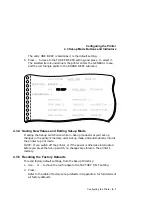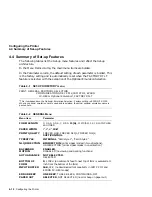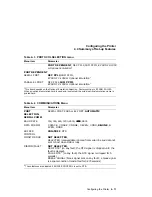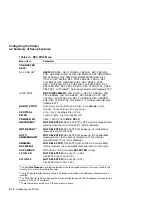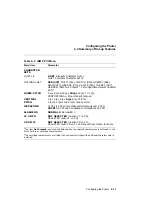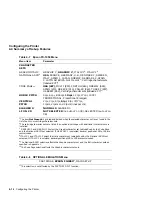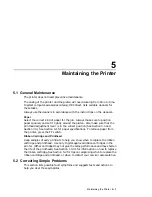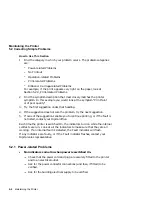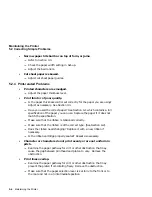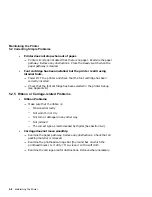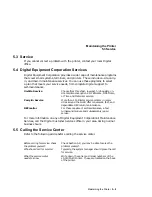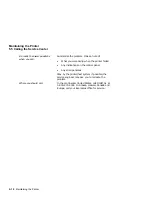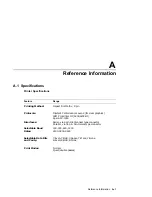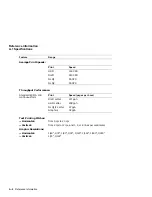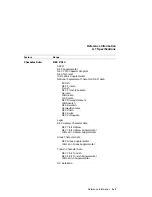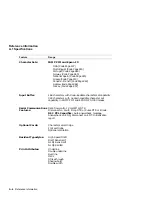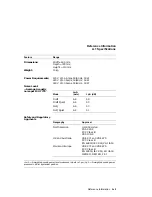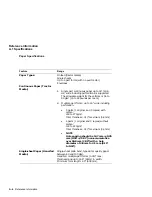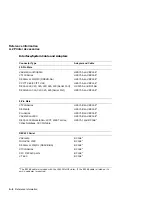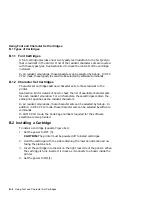
Maintaining the Printer
5.2 Correcting Simple Problems
)
Make sure that the platen can rotate freely by moving the platen knob.
The platen can only rotate freely when the printer is in the Pause
state.
)
Make sure that the paper stack is free.
•
In bidirectional printing mode, characters are not well-aligned
vertically between two consecutive lines.
)
Check and adjust the Horizontal Line Adjustment, as described in
Appendix F.
•
NLQ1 or NLQ2 print mode produces poor quality printing.
)
Check and adjust the Horizontal Line Adjustment, as described in
Appendix F.
•
On multipart preprinted forms, the printing on the copies is not
aligned with the preprinted matter.
)
Check the paper stack adjustment against the tractors.
)
Use the optional Pull Tractor.
•
Characters printed at a slant; paper tears or jams.
)
Make sure that the paper selection lever is set fully to the front or to
the rear and not in an intermediate position.
)
Examine the paper pathway; remove any obstructions.
)
Is the paper too loose or too taut between the tractors?
If the holes in the paper are deformed at their outer edges, the paper is
too taut.
If the paper rises between the tractors, it is too loose.
Readjust the tractor spacing so that the paper lies smoothly but
without any tension.
Ensure that the paper is horizontally aligned on the pins.
•
Part of printed text is missing (loss of data).
)
If you are using Serial communications, check the buffer control setting
in Set-up.
)
Check the data flow control setting on the host computer.
•
Error reports or characters printed; Ready indicator is On.
)
Examine and, if necessary, reseat the data cable connections.
)
Examine the features set-up; there may be a communications
mismatch. Do the features match those of the host computer?
Maintaining the Printer 5–7

